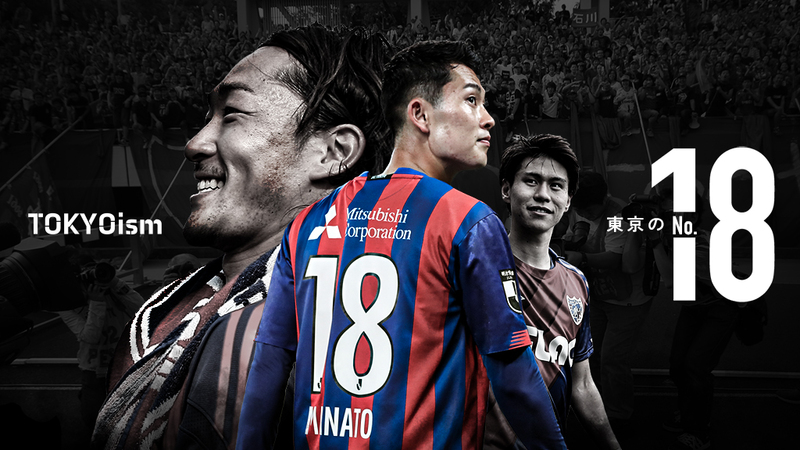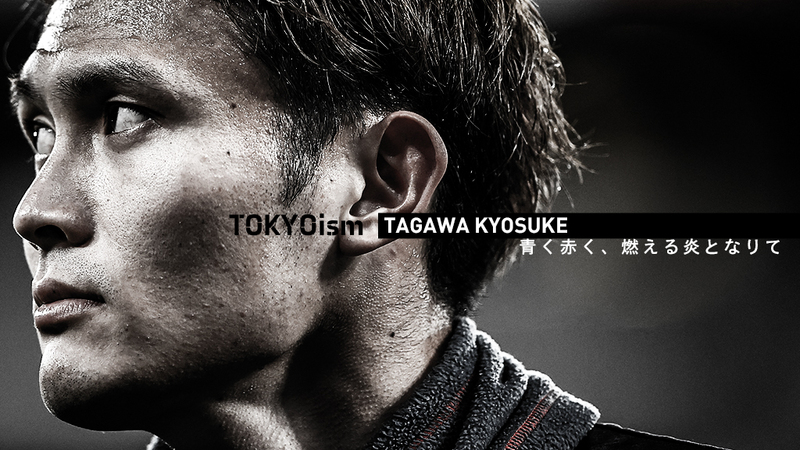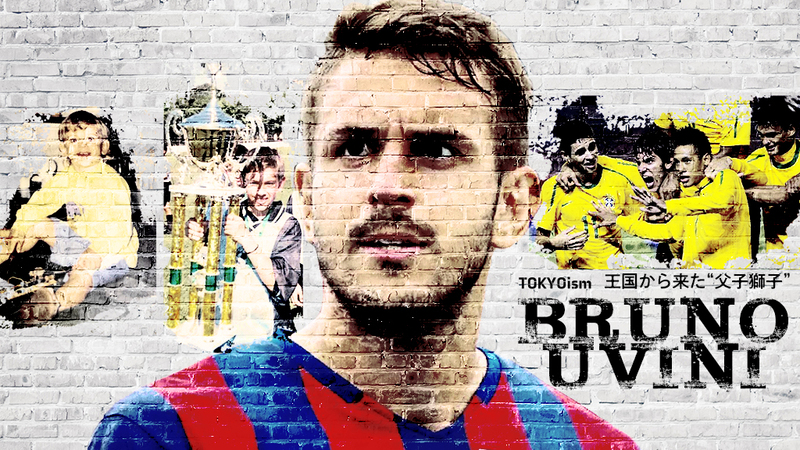Sometimes, mere numbers can hold a special meaning thanks to the men who carry them on their backs.
It will become history and tradition.
For example, Manchester United in England.
Nicknamed the "Fifth Beatle," George Best, a dribbling idol, created the glory of the number 7, which was passed down to Eric Cantona, David Beckham, and Cristiano Ronaldo.
Or, Real Madrid from Spain.
The legendary striker, Emilio Butragueño, who preferred to wear the number 7, was succeeded by Spanish treasure, Raul Gonzalez, and Cristiano Ronaldo, who became the best player in the world at this club.
FC Tokyo is also creating a lineage that should be cherished and protected.
Number 18, entrusted from Naohiro ISHIKAWA to Kento HASHIMOTO, and passed on to Manato SHINADA.
This is a story of the bond between three men connected by the number 18.
I will make Tokyo strong and win the championship
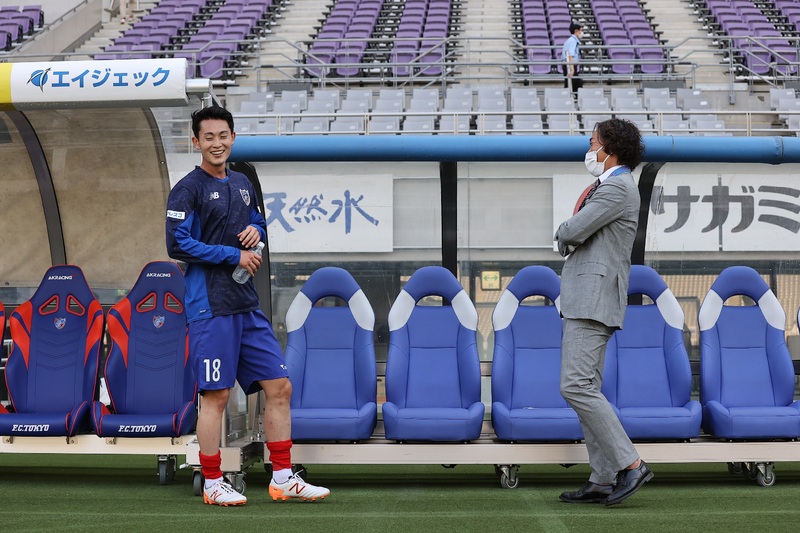
When Naohiro ISHIKAWA received a message from Manato SHINADA and heard about his determination, he felt a strong emotion welling up inside him.
"Aito said, 'I want to make Tokyo the number one club in Japan. I want to wear the number 18 and become its symbol.' For example, (Kawasaki) Frontale's number 14, (Nakamura) Kengo, wore it and made the team so strong, leading them to victory. 'I also want to become that kind of presence and change Tokyo,' he said. When I heard that, I got goosebumps."
And what I remembered was an event from when I was in my early 20s, just like Hideta.
After FC Tokyo moved to J1 for its fourth season in 2003, the club's iconic figure and "King of Tokyo", Amaral, who was beloved by fans and supporters, decided to leave the team.
During the off-season, Ishikawa received a proposal from the club. It was to inherit the number 11 jersey previously worn by Amaral.
"I was recommended by the strengthening department to wear the number 11."
If Ishikawa had accepted the proposal, the lineage of number 18 would not have been born.
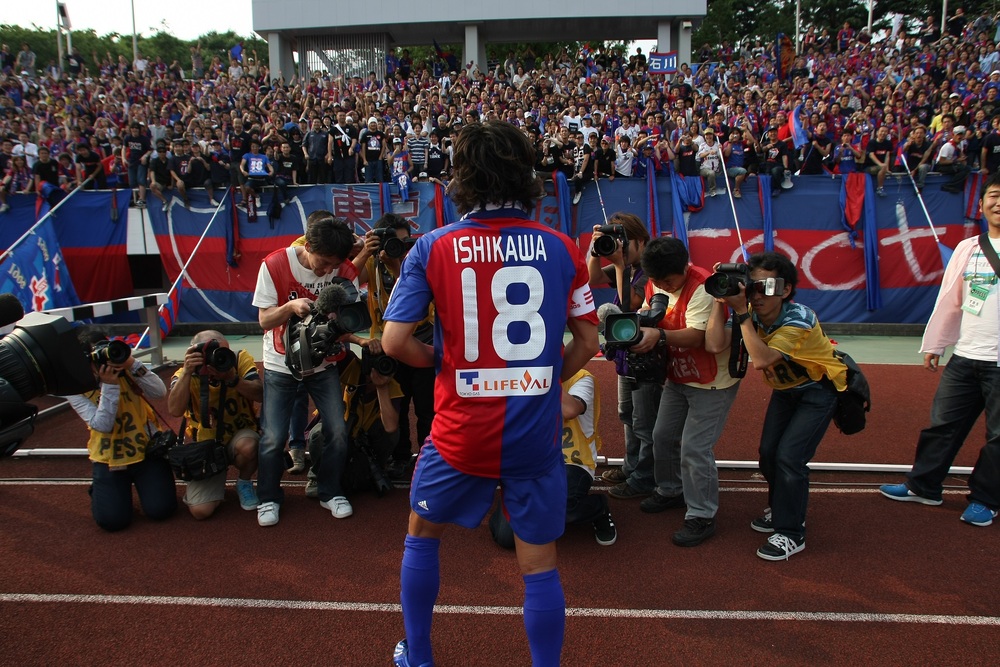
At this time, Ishikawa felt more motivated to take on the number 11 jersey and wanted to challenge himself.
"Number 11 was definitely an attractive number. However, when I joined Tokyo in the summer of 2002, I was initially given the number 36 and only changed to number 18 in 2003. I had decided in my heart to make number 18 my own and lead this team. Aito was also around the same age as me at the time. I wanted to fully support Aito so that he could also spread his wings and fly."
On the other hand, Kento HASHIMOTO, the first successor of number 18, was truly surprised by the sudden offer.
However, as I listened to Hitoshi's sincere thoughts, my desire to support my 6-year younger junior grew stronger.
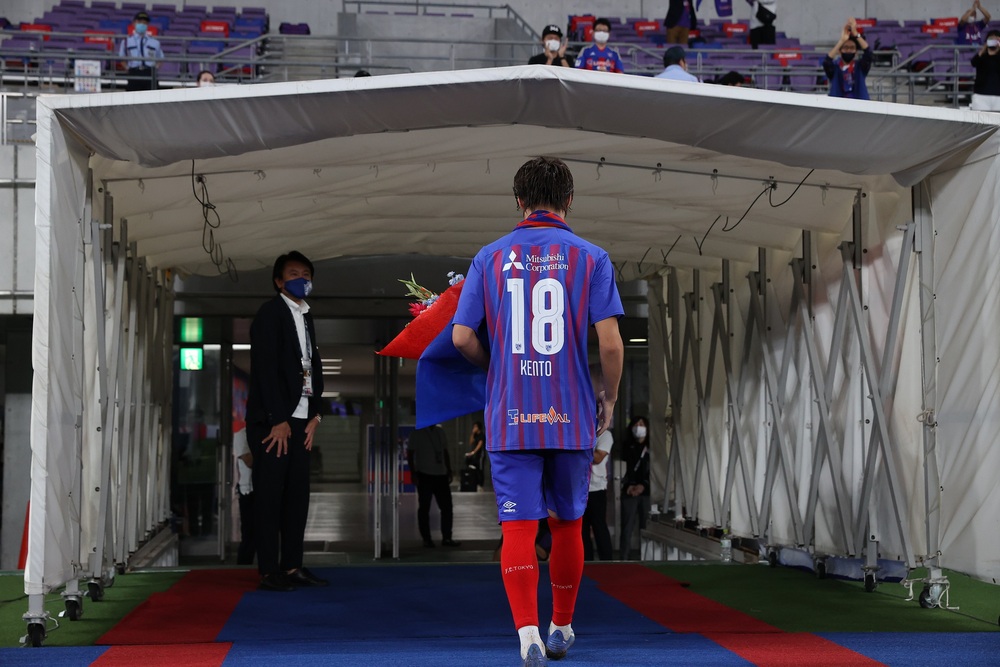
"I never thought it would happen. Just half a year after I transferred to FC Rostov in Russia, the number 18 jersey is already taken by someone else. It's sad, or rather, it's bittersweet. Of course, I didn't plan on returning to Tokyo right away, but one thing that weighed heavily on my mind when making the transfer was giving up the number 18 jersey. But if someone were to take it after me, I thought Aito would be a good choice."
Hashimoto and Shinaida both attended Tokyo's soccer school since elementary school, and are both homegrown players who have progressed through U-15 Fukagawa, U-18, and the top team.
Although they did not play together during their academy days due to their age difference, Hashimoto felt a connection to the rough and passionate personality of Shibata, which is unusual for young people nowadays. Since becoming teammates on the top team, Hashimoto has frequently invited Shibata to meals and has taken care of him.
"I talked a lot with Aito, and his passion for Tokyo was exceptional even among young players. Even when he couldn't play in matches after being promoted to the top team, he never considered a loan transfer and swore to himself, 'I will definitely play for this team.' I was inspired by Aito's passion and he's a player that I really want to support."
Last year, Hasegawa was passionately appealed to by Shinaida in a conversation for the first time in a while.
"He asked me with a very serious tone, 'Kazuto-kun, please let me wear number 18. I will carry this team on my back.' I could feel Aito's determination, so in the end I said, 'It's fine, do your best' and gave him a push on the back."
The core of Shinaida's desire to wear the number 18 jersey is his love for Tokyo, as he expressed to his two seniors.
Because I love this club that I have been with since elementary school, Hina was so frustrated.
No matter how long it takes, we cannot achieve league victory.
"Kawasaki Frontale has been playing really good football in recent years, and they have shown a overwhelming difference even in direct confrontations. I was really frustrated. I really wanted to make Tokyo stronger from the bottom of my heart. I wanted to build Tokyo into a strong team and win as a key player. With that in mind, I asked to wear the number 18."
Of course, I fully understand the weight of this number. It is precisely because I understand it that I made the offer with determination.
When I think about number 18, what comes to mind for Hinaida is the scene on the pitch in December 2017.
The day after the final match of the active last season, Ishikawa stood on the pitch of J3 as a member of FC Tokyo U-23.
At this time, third-year high school student, Shinaida, who belonged to U-18, also entered the bench.
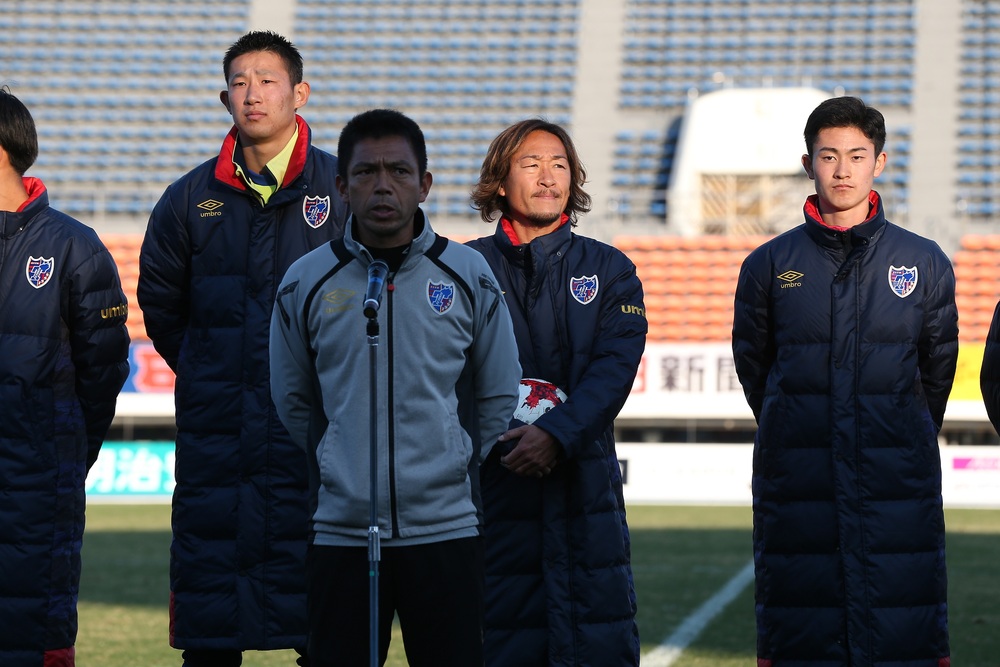
"I think we could have fought with just the top players, including Nao-san, in that game because there were overage players, but I was able to make the bench and see Nao-san's last dynamic performance up close. I think that was the club's parental love. Nao-san's success made the number 18 a symbol of Tokyo, and then Kenjin-kun, who took over, was selected for the Japan national team and started to play overseas, making its value even greater. When it came to who would carry it next, I strongly felt that I wanted to carry it myself."
When Aito explodes with emotion
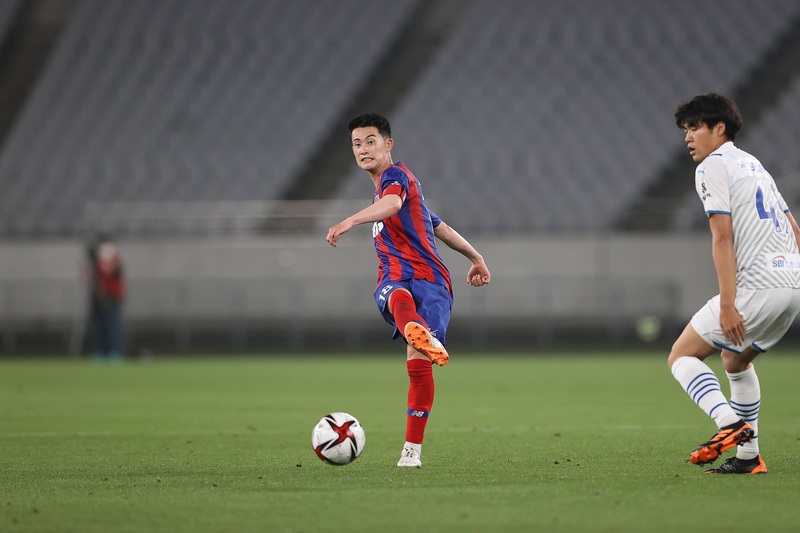
Ishikawa was a side attacker who earned the nickname "Speed Star".
Hashimoto is a defensive midfielder who boasts high intensity and driving force on both offense and defense.
On the other hand, Branden is a playmaker type who plays in the same position as Hashimoto. Their playing styles are all different. The only thing they have in common is their passion and love for Tokyo.
The two seniors point out that Hinata's strong point is his technical ability.
His accurate distribution and ability to create rhythm and build attacks is reminiscent of his academy senior, Yohei KAJIYAMA.
In addition, what Ishikawa is enamored with is the strong attitude and surprising passes.
"Aito has a good posture when holding the ball and also has the ability to control the game. However, what excites me the most is his ability to make precise vertical passes. It's all about the timing, whether he can make that pass at the right moment. Because he has the ability to create plays, I also have high expectations for Aito to score goals. He can fake a pass and then dribble through for a one-two finish, or make it seem like he's going to pass to the side and then cut inside to take a shot."
In response to such a request from Ishikawa, Shinaida answered with apologies.
"I want to be able to do anything, so I want to challenge myself. I think it's a good thing to have challenges. I want to work on it while having fun."
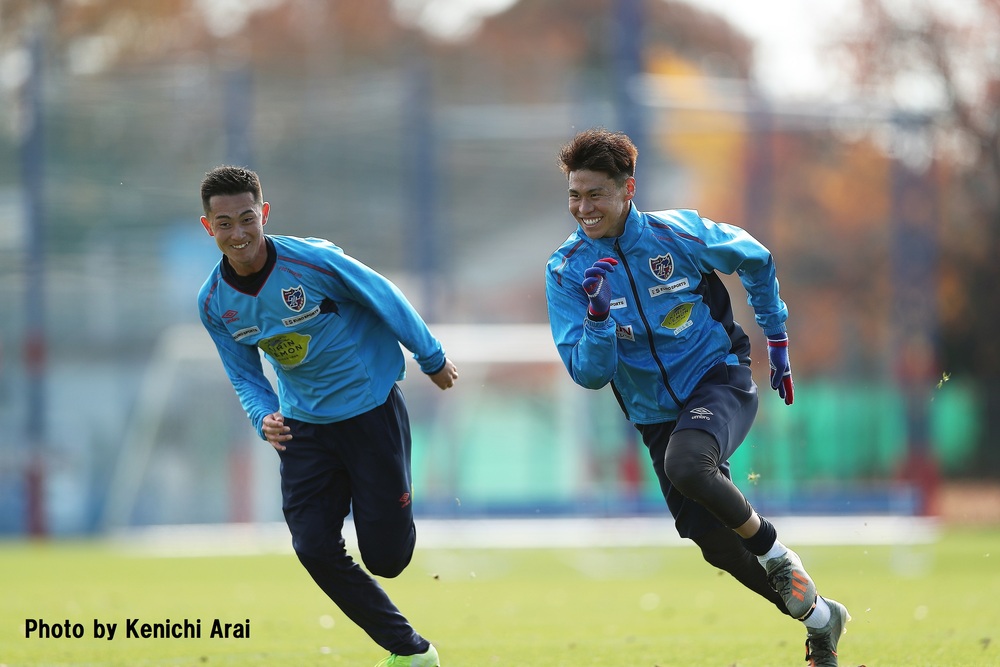
On the other hand, Hashimoto cannot forget the day he first saw Shina.
"When Aito was in 3rd grade of junior high school, I happened to see the final of the Emperor's Cup (All Japan U-15 Soccer Championship) at Nishigaoka (Ajinomoto Field Nishigaoka), and I was surprised to see such a skilled junior high school student. I thought he would definitely make it to the top team."
If you listen to Hashimoto's words, it may seem that Hideta has been an elite since junior high school and smoothly promoted to the top team.
However, Hinda had a difficult time during high school.
"When I was a second year in high school, (Rei) Hirakawa joined the U-18 team and became a midfielder with (Yoshitake) Suzuki, who was a third year. I often started on the bench and played as a closer. I recognized their abilities and knew I had to work hard. However, I suffered from groin pain and couldn't play as I wanted, which was frustrating. At that time, I blamed the environment and the trainer. But when I became a third year, I realized I had wasted time. From then on, I came to the field earlier than anyone else and stayed later than anyone else every day. As a result, I barely managed to get promoted to the top team."
Ishikawa was the one who knew about such past of Shinaida and had a satisfied expression.
Many players who have come through the academy struggle to break into the first team and are unable to overcome this barrier, resulting in a number of players who are unable to reach their full potential.
"So, (Tsuyoshi) WATANABE and (Shuto) ABE, who experienced setbacks during their academy days and struggled in college before returning, tend to be more resilient. But even though Aito wasn't able to play in games, he didn't let himself rot and instead directed his focus towards improvement. I wanted to know the reason for that, but it turns out he went through similar struggles in high school."
Ishikawa was a player who could express his emotions on the pitch.
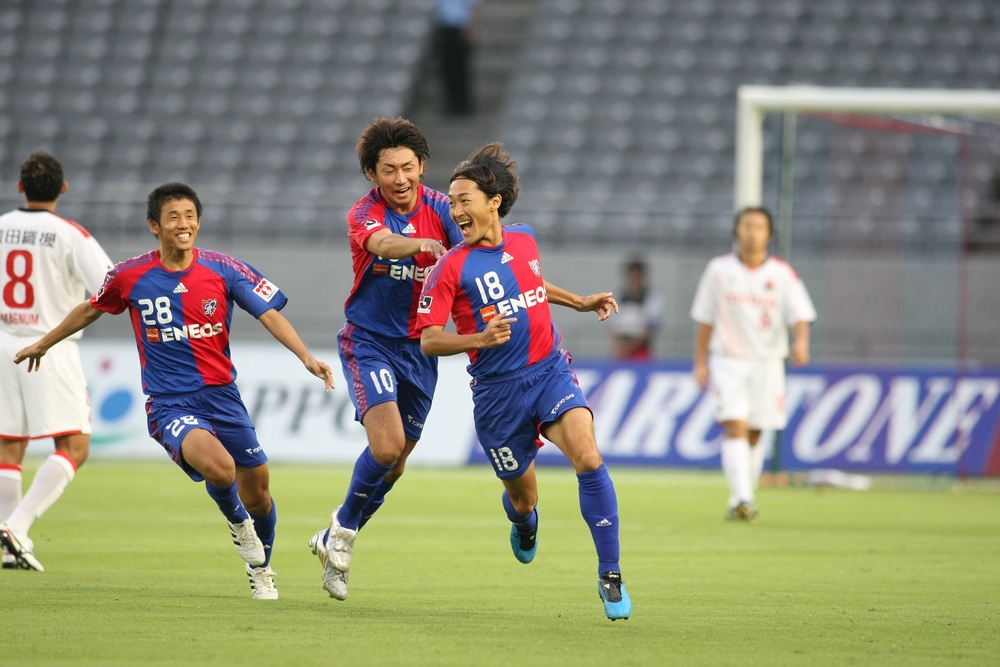
Exploding with joy, oozing with anger through intense action, struggling, and not trying to hide the suffering. Many fans and supporters were able to empathize with that appearance.
I am impressed by Hideta, who has learned how to control his emotions at the age of 22 precisely because he is that type of person.
"Even though Aito must be struggling and feeling frustrated, he doesn't show it. He also holds strong emotions, yet always plays with a cool expression. I'm not the type who can have a poker face, so I think Aito is amazing."
However, that is exactly why Ishikawa is looking forward to the changes in Shina's future.
"As Aito starts to consistently play in matches and takes on the responsibility of winning, I think he will experience a lot of things like not getting results, the team not coming together, or on the contrary, overcoming difficult situations together as one. At times like that, I'm sure new emotions will overflow. I want to see Aito's figure, happily grabbing the emblem and roaring towards the goal end, or shedding tears on the pitch. When that happens, I think he will grow even more as a player."
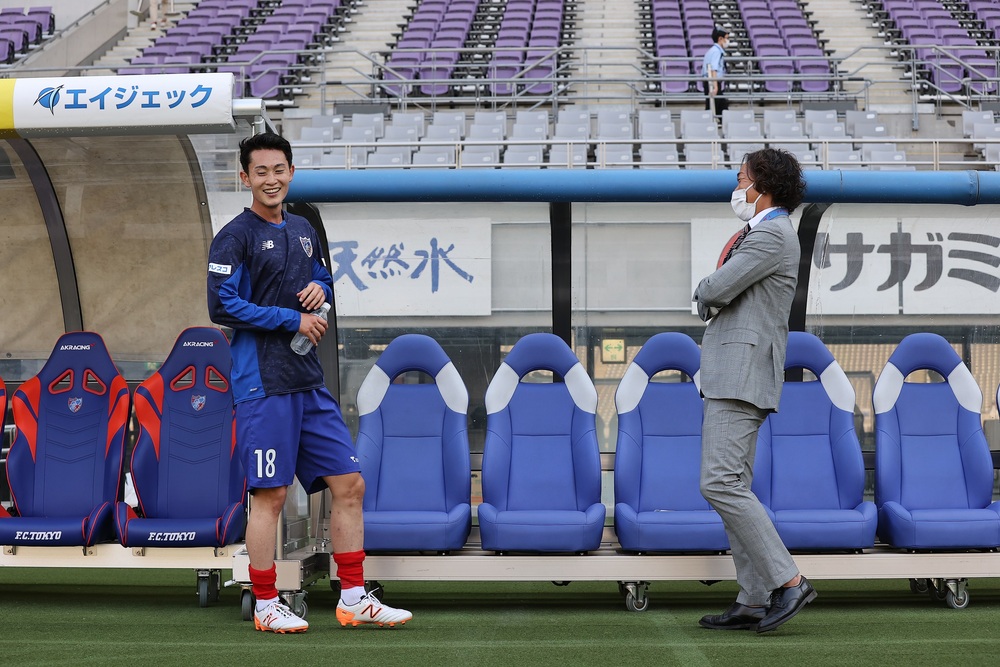
Hinata answers, chewing on the meaning of Ishikawa's words.
"I am still in a situation where I am supported by coaching staff and veteran players, so I want to observe and feel the behavior of my seniors. I think there are things that can only be felt by continuing to play in games, so I want everyone to look forward to the moment when I explode with emotions on the pitch, and I also want to enjoy it myself."
Number 18 will push your back.
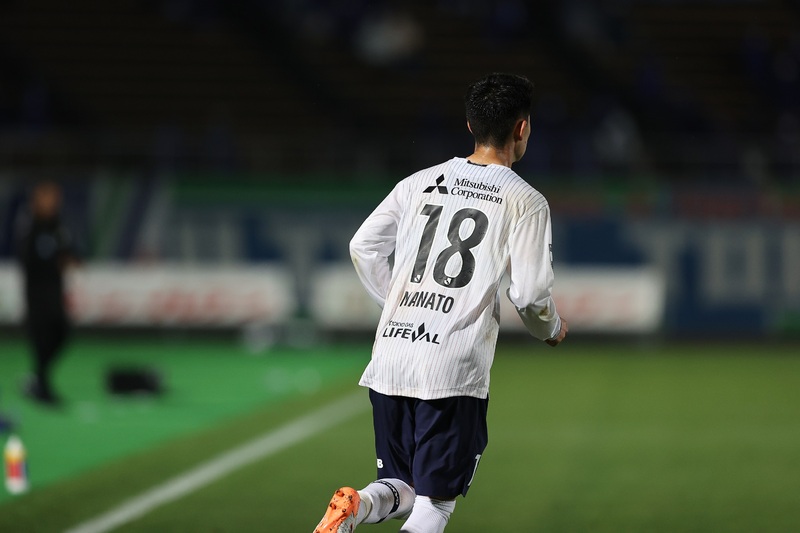
When the 2021 season began, the sight of Hinata wearing number 18 was not seen on the team.
This is due to surgery for damage to the right ankle anterior talofibular ligament and both ankle triangular bone disorders.
Despite being injured in the September 2020 Vissel Kobe match, he/she postponed surgery until the end of the season due to a series of injuries within the team and continued to fight as a member of the team.
Therefore, when he started in the AFC Champions League group stage final match against Perth Glory in December and assisted Adailton's goal, Shibata was in a state of injury to his ligament.
"I played with both ankles tightly taped."
Made my first appearance on the bench for the Oita Trinita match in the YBC Levain Cup on April 21, 2021, and made my return to the field during the final stages of the game.
It was before that match. When I saw the number 18 uniform with the letters "MANATO" in the locker room, I felt a renewed sense of determination.
"As expected, the excitement in my chest was different from before. Of course, just because my jersey number changed doesn't mean that my responsibilities have changed. I believe that I need to continue to grow even more."
What kind of number 18 do you want to be in Hata?
The common thing between the two seniors is the desire for them to be dyed in their own colors.
And what Ishikawa desires is...
"We, who have worn the number 18, have not been able to achieve it... I want to see the player wearing the number 18 holding up the trophy. I want to see the player wearing the number 18 at the center of the team that wins the league championship."
Hashimoto wears the number 18 and sees his own growth reflected in it.
"Aito said, 'If Kenjin-kun comes back, I'll give back the number 18.' But, I don't need that kind of feeling. I want him to have such a great performance that I have no place to return to. By playing with the responsibility and pressure of wearing the number 18, I was able to grow even more. I think it's better to carry a strong feeling of 'I'll perform, not just wear it' after performing well, and become even stronger."
Receiving words of encouragement from two senior players, Shinaida expresses his thoughts in words.
"Kazuto-kun told me, 'Number 18 will definitely push you forward.' I don't think it's about surpassing Nao-san or Kazuto-kun. I will inherit what Nao-san and Kazuto-kun have built up. I want to achieve it in the best form of winning the league. I will definitely raise the trophy. I promise that."
Watching Hideta's play wearing number 18, not only Ishikawa and Hashimoto, but also others are surely watching with a special feeling, feeling nervous and excited.
Even the blue and red fans and supporters, who have been wearing the blue and red uniform since their elementary school days, must be looking at Aito, who reached out for the number 18 with determination and his own will, with a feeling like that of a parent.
The history and traditions of the club, as well as the stories surrounding the jersey numbers, are built in this way.
◇Manato SHINADA Profile
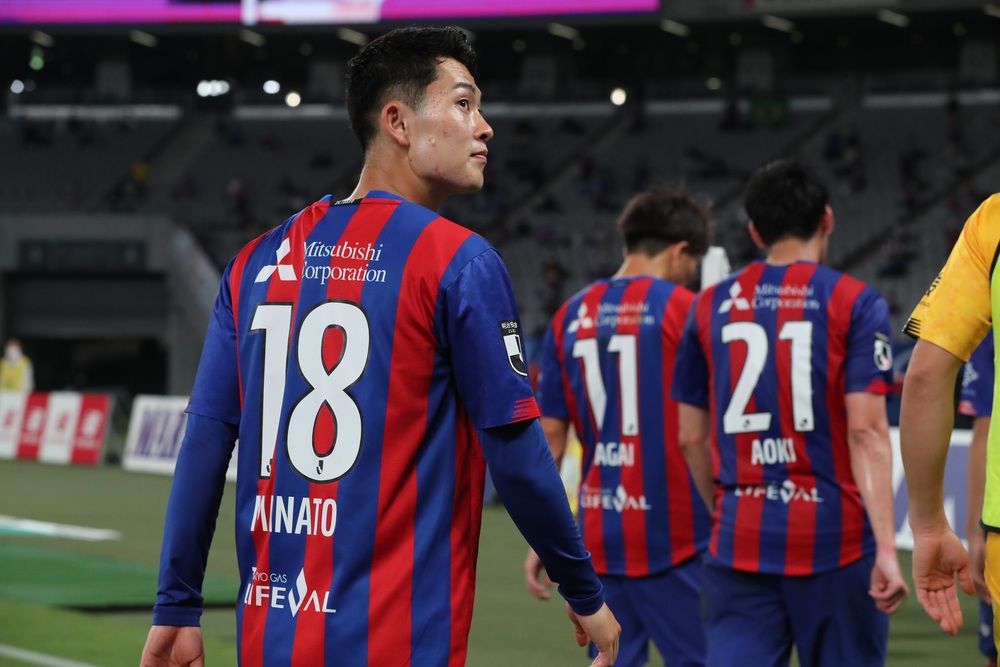
Height/Weight: 180cm/69kg
Hometown: Saitama Prefecture
Career: FC Tokyo U-15 Fukagawa → FC Tokyo U-18 → FC Tokyo
Text = Atsushi Iio
Text by Atsushi Iio
Photo = Kenichi Arai
Photo by Kenichi Arai
